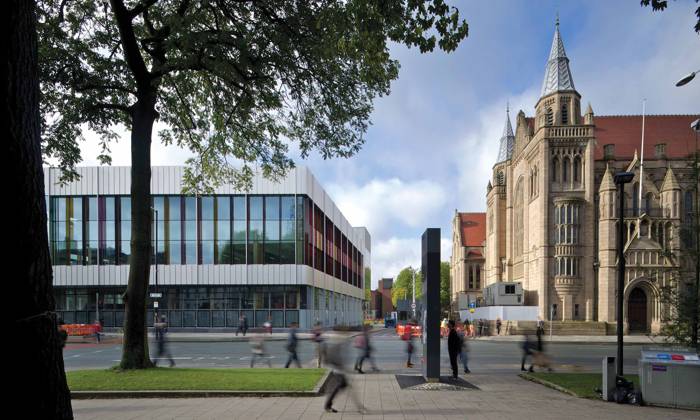Manchester’s social and environmental impact top in UK in world rankings
22 Apr 2020
The University of Manchester has again ranked as the top higher education institution in the country for its social and environmental impact across its full range of functions

The University has also been rated the second in Europe and eighth globally. These assessments come from this year’s Times Higher Education (THE) University Impact Rankings.
Manchester is competing with over 800 universities from around the world, an increase of 301 participating institutions when compared to the inaugural league table, last year.
In total, 857 universities from 89 countries and regions across six continents have been ranked for at least one SDG and 766 are included in the overall ranking.
The THE’s Impact Ranking Index is based on the local, national and international impact of our University’s education, research, operations and public engagement activity, using the UN Sustainable Development Goals (SDG) as a framework. It is the first university ranking to use these criteria, rather than traditional metrics, such as reputation and research prestige.
This includes ways in which our University is addressing “SDG3 Good Health and Wellbeing” which assesses the contribution of universities to tackling communicable diseases such as COVID-19 and “SDG17 Partnerships for the Goals”, which measures cross-national collaboration and coordination in research and education.
The 17 SDGs came into effect in 2016 and have the support of 193 Member States of the United Nations. They are the UN’s call to action to end global poverty and protect the planet, ensuring all people enjoy peace, prosperity and good health. These include challenges such as climate change, economic inequality, innovation, disease, sustainable consumption, peace and justice, among other priorities.
Dr Julian Skyrme, Director of Social Responsibility, said: “It’s really pleasing that we’ve maintained our position as the top university in the UK for social and environmental impact, despite more universities than ever entering the ranking.
“The SDGs were developed to combat some of the most pressing challenges facing the world and its population. These rankings put us at the forefront of finding solutions to remedy these problems – be that climate change, poverty or contemporary challenges such as COVID-19 and build on our pioneering report offering case studies of our impact against all 17 SDGs”
Professor Nalin Thakkar, Vice-President for Social Responsibility, added said: “Being recognised as a global top 10 university reflects the amazing work of our whole university community – our researchers, our teaching staff, professional and cultural institution staff, students and graduates and really enhances our global reputation as a leader on social responsibility and impact.”
Social responsibility is one of the University’s three core strategic goals and addressing global inequalities is one of the University’s priority research beacons.
Phil Baty, Chief Knowledge Officer at THE, commented: “We believe that universities are our greatest hope of solving some of the world’s biggest challenges, and THE’s Impact Rankings bring this to light like never before. Unlike many traditional rankings, participation is just as important as overall position, with institutions actively demonstrating how seriously they take their role in achieving a sustainable world. The results reveal how many are putting this at the heart of their missions.”
